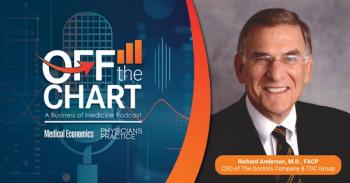
Waiting for results: The worst part of medical tests?
Diagnostic procedures are necessary for patient health but that doesn't make them pleasant. See how one doctor dealt with having his wife on the other side of the clipboard.
In yet another confirmation that middle age has invaded our home, my wife had her first screening mammogram a few days ago. Actually, she was surprised by the ease and painlessness of the whole process. The worst part, she said, was peeling the nipple markers off afterward. I told her I didn't realize they used nipple markers but was glad she got the test done anyway.
WAITING, AND WAITING SOME MORE
Waiting for test results is like waiting for a thunderstorm. My wife hasn't felt any breast lumps, which is good. But her grandmother died from breast cancer, which isn't good. She was in her 70s, though, and no other family members have had cancer. Really, I'm not stressing over this. I am simply aware of the waiting-of the chance of storms. Some day next week my wife will get her mammogram results. So we wait.
The thing is, as we drove home from dinner tonight, a thought flashed through my mind: Wouldn't it have been easier not to be in this situation at all? Had my wife not gone for the mammogram, there would be no results to wait for, especially over a holiday weekend. There would be no way that breast cancer could rain down on our lives, because we wouldn't have gone looking for trouble.
Being a seasoned family doctor, I quickly dispatched those thoughts with a version of what I tell my female patients about the importance of screening mammograms.
But I get it now. I understand why a preponderance of uncompleted mammograms sit in the overdue results folder on my computer. Why so many 51-year-olds haven't gotten their colonoscopies yet. And why so many people don't visit a doctor for decades. It's easier to live in ignorance. Living in happy naiveté about your health is less stressful. Life has enough troubles. Why would you put yourself at risk for more?
All the reasoning in the world about how many conditions are more easily treated-even cured-when caught early doesn't squelch the natural instinct to avoid pain. And patients tell me that the most painful part of the process often is the waiting.
Newsletter
Stay informed and empowered with Medical Economics enewsletter, delivering expert insights, financial strategies, practice management tips and technology trends — tailored for today’s physicians.






